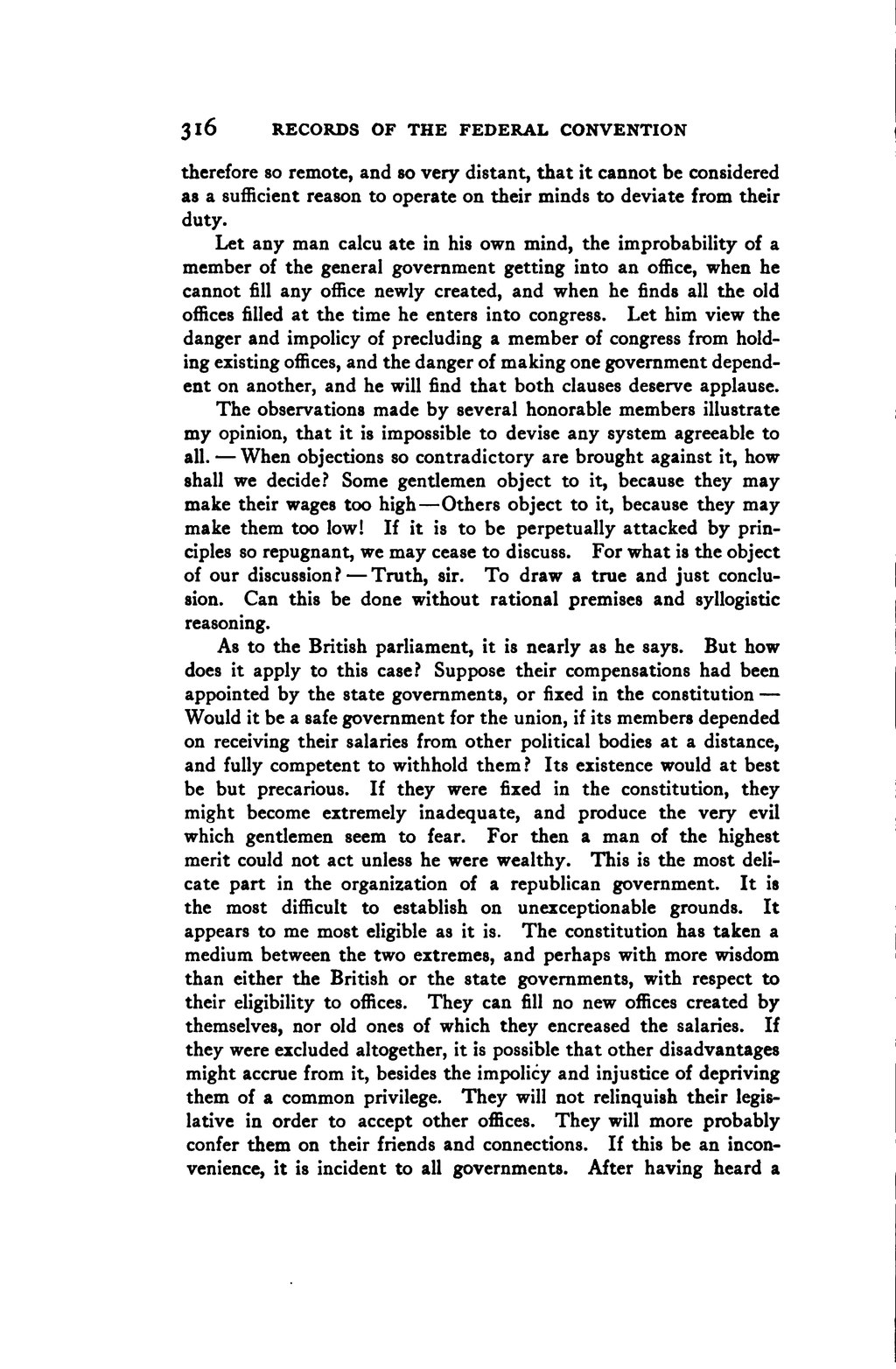therefore so remote, and so very distant, that it cannot be considered as a sufficient reason to operate on their minds to deviate from their duty.
Let any man calculate in his own mind, the improbability of a member of the general government getting into an office, when he cannot fill any office newly created, and when he finds all the old offices filled at the time he enters into congress. Let him view the danger and impolicy of precluding a member of congress from holding existing offices, and the danger of making one government dependent on another, and he will find that both clauses deserve applause.
The observations made by several honorable members illustrate my opinion, that it is impossible to devise any system agreeable to all.—When objections so contradictory are brought against it, how shall we decide? Some gentlemen object to it, because they may make their wages too high—Others object to it, because they may make them too low! If it is to be perpetually attacked by principles so repugnant, we may cease to discuss. For what is the object of our discussion?—Truth, sir. To draw a true and just conclusion. Can this be done without rational premises and syllogistic reasoning.
As to the British parliament, it is nearly as he says. But how does it apply to this case? Suppose their compensations had been appointed by the state governments, or fixed in the constitution—Would it be a safe government for the union, if its members depended on receiving their salaries from other political bodies at a distance, and fully competent to withhold them? Its existence would at best be but precarious. If they were fixed in the constitution, they might become extremely inadequate, and produce the very evil which gentlemen seem to fear. For then a man of the highest merit could not act unless he were wealthy. This is the most delicate part in the organization of a republican government. It is the most difficult to establish on unexceptionable grounds. It appears to me most eligible as it is. The constitution has taken a medium between the two extremes, and perhaps with more wisdom than either the British or the state governments, with respect to their eligibility to offices. They can fill no new offices created by themselves, nor old ones of which they encreased the salaries. If they were excluded altogether, it is possible that other disadvantages might accrue from it, besides the impolicy and injustice of depriving them of a common privilege. They will not relinquish their legislative in order to accept other offices. They will more probably confer them on their friends and connections. If this be an inconvenience, it is incident to all governments. After having heard a
